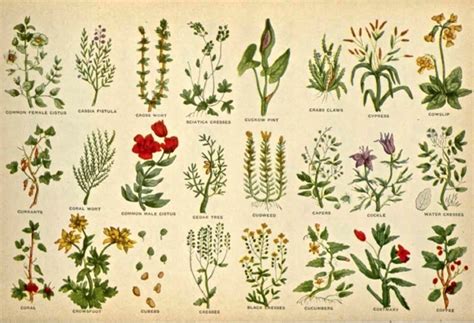Toxic parenting is a pattern of harmful behaviors and attitudes that can deeply affect a child’s emotional and psychological well-being. Whether intentional or not, these behaviors create a hostile environment that hinders healthy development. In this article, we’ll explore the various types of toxic parenting styles and their impact on children, including the signs and symptoms that may indicate a toxic relationship. We’ll also discuss the long-term effects on child development and provide strategies for identifying and breaking the cycle. Finally, we’ll offer support and resources for parents seeking to change and guide children toward healing and recovery from the scars of toxic parenting.
Join domgiz.com for a detailed examination of this topic.
1. Understanding Toxic Parenting
Toxic parenting refers to a pattern of behaviors that consistently harm a child’s emotional and psychological health. These behaviors can range from overt actions, like verbal abuse and excessive criticism, to more subtle forms, such as neglect, manipulation, or unrealistic expectations. What makes toxic parenting particularly damaging is its repetitive nature, creating an environment where the child feels unsafe, unloved, or inadequate.
Often, parents engaging in toxic behaviors may not be fully aware of the harm they’re causing, as these actions can stem from their unresolved issues, stress, or lack of knowledge about healthy parenting practices. However, the impact on the child is profound, affecting their self-esteem, ability to form healthy relationships, and overall mental well-being. Understanding what constitutes toxic parenting is the first step toward recognizing and addressing these harmful behaviors. By identifying these patterns, parents can begin to make changes that foster a more nurturing and supportive environment for their children.

2. Types of Toxic Parenting Styles
Toxic parenting can manifest in various styles, each with its own set of damaging behaviors. One common type is the authoritarian parent, who enforces strict rules and expectations with little room for flexibility or empathy, often leading to a child feeling controlled and undervalued. Another style is the neglectful parent, characterized by a lack of involvement or interest in the child’s life, which can result in feelings of abandonment and low self-worth.
The perfectionist parent sets unrealistically high standards, causing the child to struggle with constant pressure and fear of failure. Additionally, the manipulative parent may use guilt, blame, or emotional blackmail to control the child’s actions, eroding their sense of autonomy and self-confidence. Lastly, the overprotective parent can be harmful by stifling the child’s independence and ability to cope with challenges. Each of these toxic styles creates a damaging environment that hinders a child’s emotional growth and well-being.

3. Signs and Symptoms in Children
Children raised in toxic parenting environments often exhibit a range of signs and symptoms that reflect the emotional turmoil they experience. One common sign is low self-esteem, where the child feels unworthy or inadequate due to constant criticism or unrealistic expectations. This can manifest as self-doubt, lack of confidence, or excessive self-criticism.
Anxiety and depression are also prevalent, as the child may internalize the stress and negativity from their environment, leading to persistent feelings of sadness, hopelessness, or worry. In some cases, children may display behavioral issues, such as aggression, defiance, or withdrawal, as they struggle to cope with the emotional stress.
Difficulty forming healthy relationships is another symptom, as children may either become overly dependent on others for validation or avoid close connections altogether, fearing rejection or judgment. Additionally, these children may have poor academic performance or lack motivation, as the toxic environment can diminish their ability to focus and thrive. Recognizing these signs is crucial for addressing the underlying issues and providing the necessary support for the child’s well-being.

4. Impact on Child Development
The impact of toxic parenting on child development is profound and far-reaching. Emotionally, children exposed to toxic behaviors may develop deep-seated feelings of inadequacy and unworthiness, which can persist into adulthood. These negative self-perceptions often lead to difficulties in forming a strong sense of identity and self-worth.
Cognitively, the stress and anxiety caused by toxic parenting can impair a child’s ability to focus, learn, and perform academically. This can result in long-term educational setbacks and limit opportunities for future success. Socially, these children may struggle to build healthy relationships, as they may either become overly submissive to avoid conflict or display aggressive tendencies learned from their environment.
The constant exposure to negativity and manipulation can also hinder the development of essential life skills, such as problem-solving, resilience, and emotional regulation. Ultimately, the damage caused by toxic parenting can create a cycle of dysfunction that extends into the child’s adult life, affecting their overall mental health and ability to thrive.
5. Identifying and Breaking the Cycle
Breaking the cycle of toxic parenting begins with identifying harmful behaviors and understanding their roots. Parents need to recognize patterns in their actions, such as excessive criticism, emotional manipulation, or neglect, and acknowledge the impact these behaviors have on their children. Self-reflection is crucial, as it allows parents to confront unresolved issues from their own upbringing that may be influencing their parenting style.
Once harmful patterns are identified, the next step is to seek change through education and support. This may involve learning new parenting techniques, such as positive reinforcement, active listening, and setting healthy boundaries. Professional help, like therapy or counseling, can also be valuable in addressing deep-seated issues and developing healthier ways to interact with children.
It’s important for parents to be patient with themselves during this process, as breaking long-established habits takes time and effort. By committing to change and fostering a nurturing environment, parents can break the cycle of toxicity and create a positive, supportive atmosphere where their children can thrive.
6. Support and Resources for Parents
Support and resources are essential for parents looking to break free from toxic parenting patterns and create a healthier environment for their children. One of the most effective resources is parenting classes or workshops, which offer guidance on positive discipline techniques, effective communication, and understanding child development. These classes provide practical tools and strategies that can be immediately applied in everyday interactions.
Therapy and counseling are also critical resources, especially for parents struggling with unresolved emotional issues that contribute to toxic behavior. Working with a mental health professional can help parents explore and address the root causes of their actions, leading to more constructive parenting approaches.
Support groups offer a sense of community and understanding, allowing parents to share their experiences and learn from others facing similar challenges. Online resources, such as parenting blogs, forums, and educational websites, can also provide valuable information and advice. By utilizing these supports, parents can gain the knowledge and confidence needed to foster a healthier, more supportive relationship with their children.
7. Healing and Recovery for Children
Healing and recovery for children affected by toxic parenting involve creating a supportive and nurturing environment where they can rebuild their self-esteem and emotional well-being. One crucial step is to provide consistent and unconditional support, offering a safe space for children to express their feelings and experiences without judgment.
Engaging in therapy or counseling can help children process their experiences and develop coping strategies. Therapeutic interventions such as cognitive-behavioral therapy (CBT) or play therapy can be particularly effective in addressing emotional trauma and building resilience.
Additionally, fostering positive relationships with caring adults, such as mentors or supportive family members, can provide children with the emotional validation and guidance they need. Encouraging healthy self-expression through activities like art, sports, or journaling can also be beneficial. By creating a stable, loving environment and providing
Addressing toxic parenting is essential for fostering a nurturing environment where children can thrive. By understanding the various types of toxic behaviors, recognizing their signs and symptoms, and acknowledging their impact on development, parents can begin to break the cycle of harm. With the right support and resources, parents can adopt healthier practices, while children can receive the care needed for healing and recovery. Committing to these changes ensures a positive, supportive atmosphere that promotes the well-being and growth of both parents and children.
domgiz.com

